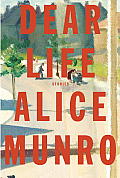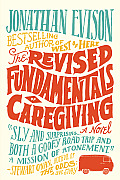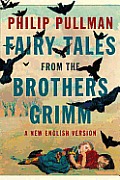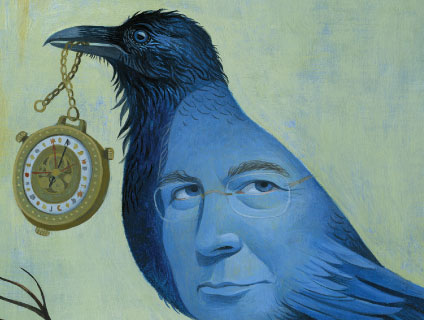Great year for storytelling, eh? Okay, they all are. In any case, we asked our staffers to share the fiction they most enjoyed reading this year, as well as their favorite new nonfiction, music, and film & TV. So here’s what we got. (You might also enjoy our house music critics’ Top 10 lists, and resident cinemaphile Swin’s unique recounting of “The Most Glorious and Fantastic Movies of 2012—and the Worst of the Worst.”)

The Fifty Year Sword, by Mark Danielewski: What amazes me about Danielewski is that as weird and abstract as his experimental literature may be, the storyline is always held together by a dark intrigue, which in the case of this novella takes the form of an enigmatic story teller who introduces himself as “a bad man with a very black heart,” making it impossible to put down. —Sharzy Makaremi, receptionist

Zone One, by Colson Whitehead: I may write about policy and politics, but I also love zombies, which is why Whitehead’s latest was my favorite novel this year. Set in New York, it picks up where most in the genre stop, as humans attempt to reconstruct civilization among the “skels,” as they call the undead. Turns out humans are just as messy and romantic and fucked up post-apocalypse as we are right now. —Kate Sheppard, reporter

Dear Life, by Alice Munro. Almost anyone can slap together an interesting dish with truffles or caviar or bluefin tuna. But it’s the rare cook who can create something extraordinary with simple supermarket stuff. That’s Munro, a woman who transformed the everyday life of rural Ontario into one of the English language’s great bodies of work. Fourteen books in and past the age of 80, she still has the spare, devastating prose and storytelling chops to make the hair on your neck stand up. —Tom Philpott, food and ag blogger
A Hologram for the King, by Dave Eggers: I’m a big Eggers fan, but haven’t really loved his writing since 2004’s How We Are Hungry. Hologram, however, about a down-and-out American businessman pinning his last hopes on the Saudi king, felt like a treat again. It’s less of an opus than Jonathan Franzen’s Freedom, but strikes the same post-recession nerves. —Brett Brownell, multimedia producer
1Q84, by Haruki Murakami: Two moons instead of one is just the beginning of Murakami’s surreal universe, where a cult and creepy “little people” surround an epic love story between math-teacher-turned-novelist Tengo and personal-trainer-turned-assassin Aomame. This hefty book (actually a late-2011 release, but we’ll let it slide) seems unrelenting at times, though every time I started to feel restless, the plot would ripple and deepen, making me forge onward. —Maddie Oatman, research editor
The Magician King, by Lev Grossman (paperback 2012): This is a deeper, darker, more morally complicated, and all-around superior sequel to 2010’s The Magicians, which itself was praised by the New York Times as “Harry Potter for adults.” —Nick Baumann, news editor
Telegraph Avenue, by Michael Chabon: I loved everything about this book, starting with the simulated collectible record book jacket, down to the gorgeous yet precise language and Chabon’s complex take on the interplay between people’s passions and their actions. —Tim Luddy, creative director. (Read our interview with Chabon about Telegraph Avenue and much else.)
Elegy for Eddie, by Jacqueline Winspear: The ninth of Winspear’s popular Maisie Dobbs mysteries is an absorbing page-turner that’s also a nuanced account of English society between the world wars, with a bit of psychology and Eastern philosophy thrown in. The first chapter, an account of Eddie’s mother giving birth, is one of the most moving things I’ve read all year. —TL

The Revised Fundamentals of Caregiving, by Jonathan Evison: Since “the disaster,” our protagonist, his marriage broken, has regressed into a bumbling, hapless, irresponsible train-wreck of a man. When he takes a job caring for a snarky teen with muscular dystrophy, and then takes the kid on a road trip to see his absentee father, all hell breaks loose. It’s over the top, darkly hilarious, and, in the end, kinda moving. —Michael Mechanic, senior editor
Mr. Penumbra’s 24-Hour Bookstore, by Robin Sloan: Despite the underlying middle-school male ethos (or perhaps because of it) I was totally caught up in this inventive adventure mystery. Old and new collide as Robin Sloan’s tech-obsessed characters use modern toys to try and crack the code of an ancient literary society. Good fun—and the cover glows in the dark! —MM (Read Maddie Oatman’s Q&A with Sloan.)
Telegraph Avenue, by Michael Chabon: A Pulitzer Prize-winning master of elaborate metaphor, Chabon amps it up even more than usual as he follows the struggles of two families in this Tarentino-esque Oakland romp loaded with racial, sexual, and marital tensions, oddball characters, and references to vintage jazz and 1970s Blacksploitation flicks. —MM (Read our interview with Chabon about Telegraph Avenue and much else.)

Fairy Tales from the Brothers Grimm, a new retelling by Philip Pullman: Pullman, best known for his marvelously inventive young adult trilogy His Dark Materials, has culled through hundreds of versions of the old tales to pick out his favorites, which he retells in his own clear and unique voice. You’ll find the old standards like “Hansel & Gretel” and “Rumpelstiltskin,” along with some less-common tales, like “The Girl With No Hands,” but don’t expect any saccharine Disney versions: As I explained to Pullman during our recent interview, I had read his version of “Cinderella” to a mixed-age group around a campfire, and when the birds swooped down to peck out the selfish stepsisters’ eyes, the kids all laughed. So much for the Grimms’ notion of scaring ’em straight. —MM
This Is How You Lose Her, by Junot Díaz: Once again, Díaz filters his boisterous prose through Yunior, a recurring protagonist (seen in both Drown and The Brief Wondrous Life of Oscar Wao) who recounts his life in Dominican Nueva Jersey, one broken relationship at a time. —Ian Gordon, copy editor
A Hologram for the King, by Dave Eggers: The postmodern Dave Eggers from A Heartbreaking Work of Staggering Genius is nowhere to be seen in this spare, absurd tale of globalization, middle age, and parenthood set in, of all places, Saudi Arabia. —IG








